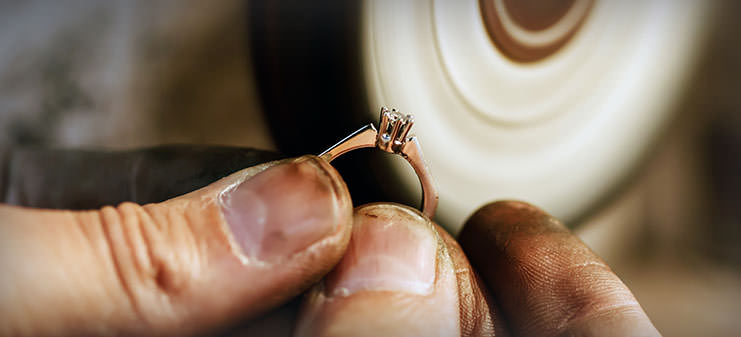Custom jewellery manufacturing is popular nowadays, and not just for special occasions either. During the rise of the modern era, when rulers and queens were done away with, custom jewellery manufacturing was usually reserved for engagement and wedding rings. A man would pick a specific wedding ring design, perhaps through a catalogue, and would have the jeweller create the ring. Sometimes, he was aided by his soon-to-be-wife in choosing the wedding rings’ and engagement rings’ designs. More often than not, the exact specifications, such as the number of tiny pave diamonds on a setting, were left to the custom jewellery manufacturing company or jeweller. Nowadays, when a couple has wedding rings or engagement rings custom-made, they are usually involved in every part of the jewellery-making process. That is, they are up-to-date with which part of the ring is being made at a certain point in time, and which exact settings are to be used. Men and women know much more about jewellery making than ever before because modern society has so much information on hand.
While the rich grow richer and new millionaires are made every day; custom jewellery manufacturing is on the rise. Custom jewellery manufacturing is no longer relegated to just wedding and engagement rings. A large part of custom jewellery manufacturing is involved in making rings, earrings, necklaces, bracelets, anklets and all kinds of custom jewellery to adorn all aspects of the body.
These are the steps in manufacturing jewellery:
Table of Contents
A Sketch of the Jewellery is Made
Most jewellery manufacturing companies have an in-house artist who can design and render a piece of jewellery on a piece of paper. After the idea is laid out in a drawing, colours are added by watercolour or pencil. The colours match the colours that are soon to be alive in the jewellery.
A 3D Jewellery Model is Designed
After the sketch is developed, it is time for the digital model to be made. The 3D designer will use CAD (Computer-Aided Design) software to create a digital render of your jewellery. This can take anywhere from a day to a week or two. It all depends on how technically proficient the 3D artist is, not to mention how complicated the design of the jewellery is. More prominent and renowned jewellery houses usually have a faster turnaround time in their custom jewellery manufacturing process. That said, smaller jewellers have more time on their hands and could make the 3D render in equal time.
Do keep in mind that the 3D model is created for functionality and not for exact aesthetic rendering. This first step is an excellent way for you to see and understand more about the jewellery you are having made.
A 3D Wax Machine Prints Your Jewellery
The next step is making the wax model. In most modern custom jewellery manufacturing companies, a 3D printing machine prints a wax model of your jewellery. This model is made out of resin and is a beautiful way to see what your jewellery might look like. This process typically doesn’t take more than two days.
The Wax Model is Cast into Metal
In the casting process, your jewellery begins to look a lot more like the finished product. The wax is melted and is replaced by molten metal in the metal you have chosen. Usually, the metal is gold, silver or platinum. The metal dries into the shape of your jewellery.
Basic Jewellery Assembly
At this point in the process, the jeweller refines your jewellery by filing the casting skin down to the metal. Voila, your jewellery is revealed. The jewellery makes aesthetic adjustments and ensures the piece can functionally support any gemstones that may be in the design.
Any additional design takes place before the next step.
The Stone Setting Process
Diamonds and gemstones are added to the jewellery. The mount comes first, and side stones are added after.
Polishing, Finishing, and Quality Assurance
Your piece of jewellery is all but created. A polisher polishes the metal to perfection. Engravings are applied. Each detail of the jewellery is analysed. And there you have it: the finished product.

